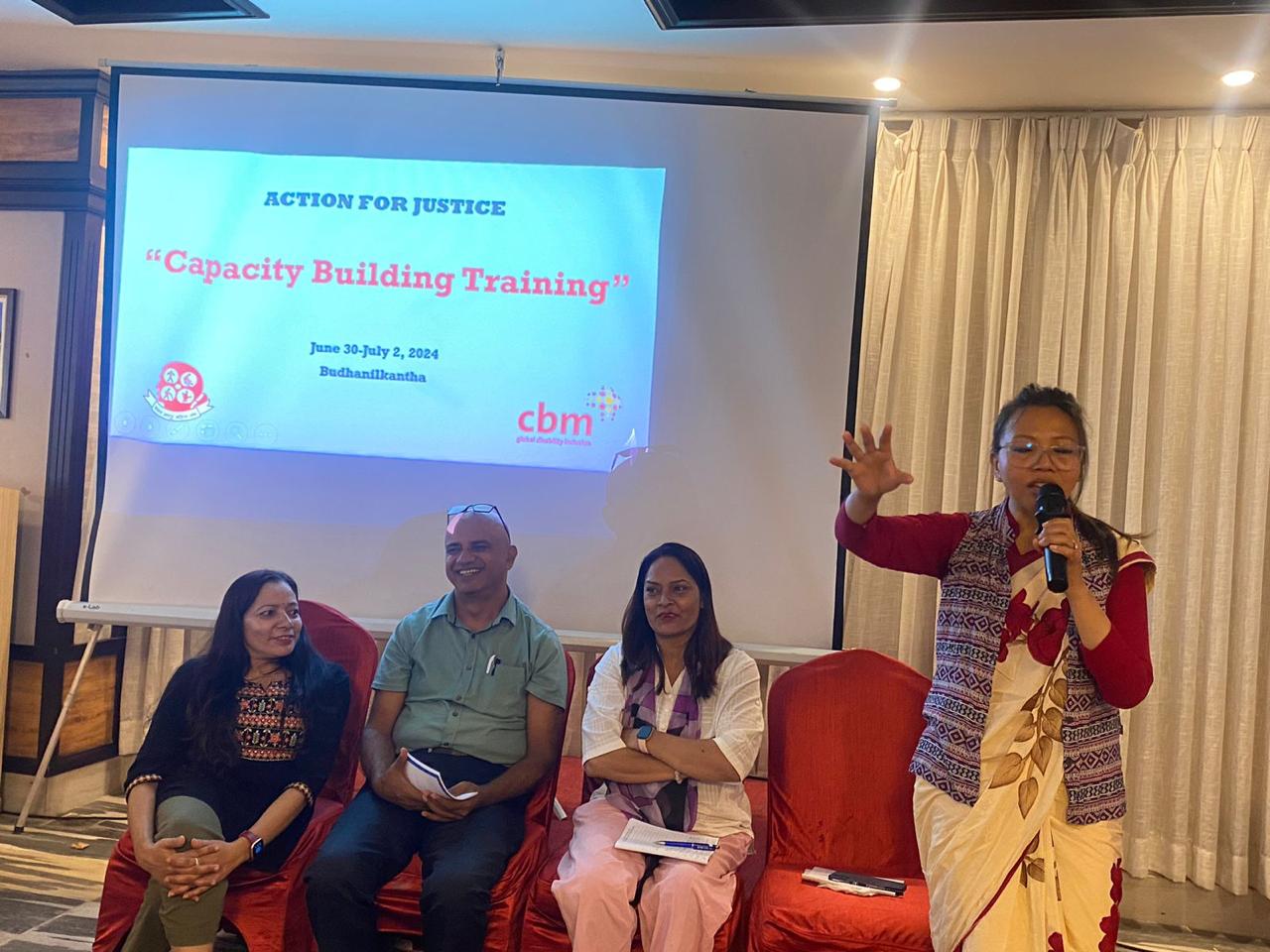Anita Lama, deputy mayor of Budhanilkantha Municipality, has informed that the municipality is going to appoint a sign language interpreter in the municipality from this fiscal year. Speaking at the opening session of the capacity-building training organized by the Nepal Disabled Women Association NDWA in partnership with CBM Global Nepal, she said that an interpreter will be under the judicial committee of the municipality. She further added that a budget has been allocated for persons with disabilities in each ward this year as well. “Policies and programs for the target groups are planned and implemented but hard to get results as we spent budgets” ” she said So, the budget and policy program for persons with disabilities have been more institutionalized from this year.
Likewise, while speaking at the closing session of the training, the Deputy mayor of Tarakeshrawar Municipality, Srijana Burlakoti, said that she wanted to work for the person with disabilities from day one after she won as a deputy mayor. She also committed to being ready to work in every field of disability and to facilitate it in the coming days.
Three-day capacity-building training on the inclusion of people from underrepresented groups including the supported decision-making to the project team, NDWA’s SGBV response group, NDWA’s members, & key OPD representatives was organized from 30 June to 2 July 2024.
Various agendas like Identification and rights of underrepresented groups, disability inclusion, concept and types of gender-based violence, concept of disability and response to violence, UNCRPD provisions focused on women and girls with disabilities and sexual and gender-based violence, access to justice, case management, leadership development of women with disabilities were raised in a session.
Methods like interaction, group work, and presentation were adopted during the session. Participants seemed very curious about the training and raised issues, shared experiences and incidents they had faced were shared in each session.
Participants were able to gain awareness and knowledge about gender-based violence, supportive decision-making process, inclusion of underrepresented communities, legal capacity, and empowering them to make their own decisions.
Thirty-Two women including executive committee members of NDWA, staff, and different OPD representatives participated in the training.

 Nepali
Nepali
